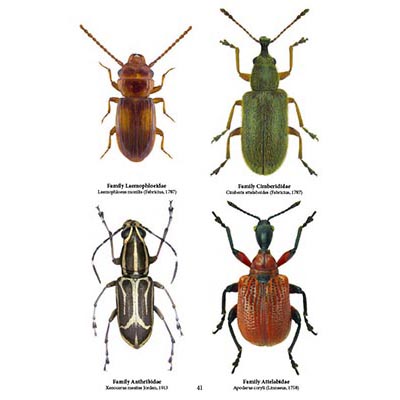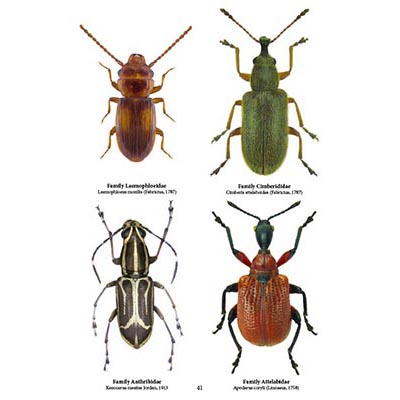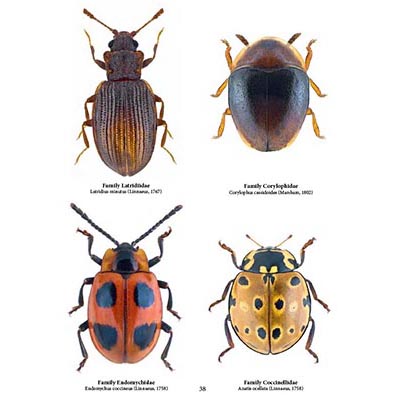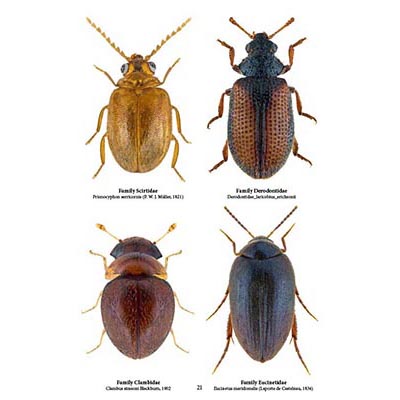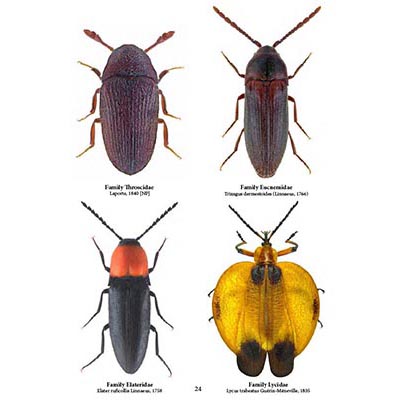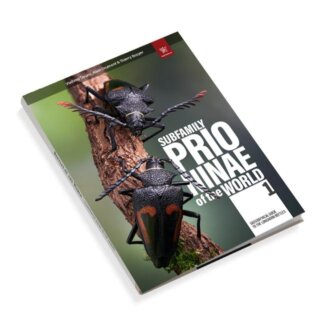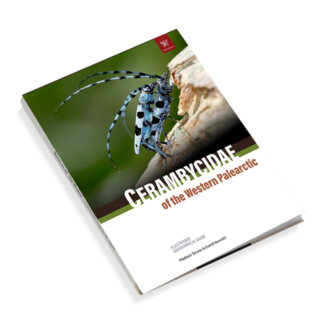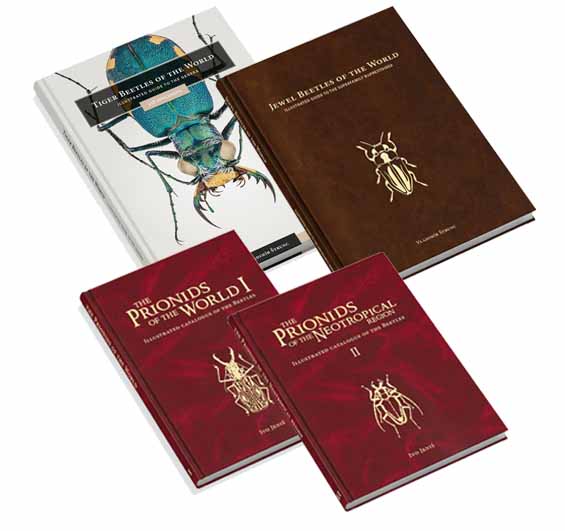Unique atlases with photos. Insects are the most diverse group of organisms on Earth, comprising over one million described species, with estimates suggesting that there may be as many as 30 million species in total. This incredible diversity makes insects a vital area of study within entomology, the scientific study of insects. Book about Beetles
Book novelties:
Prioninae of the World I.
Cerambycidae of the Western Paleartic I.
Insect
You can find here: Carabidae, Buprestidae, Cerambycidae, Scarabaeidae, Lucanidae, Chrysomelidae, Curculionidae, Staphylinidae
Books about Beetles
Unique pictorial atlases for identifying Beetles:
(2020) Tiger Beetles of the World, Cicindelidae, Illustrated guide to the genera
(2023) Tiger Beetles of Africa, Cicindelidae, Geographical guide to the family Cicindelidae
(2024) Tiger Beetles of Orient, Cicindelidae, Geographical guide to the family Cicindelidae
(2022) Ground Beetles of Africa, Afrotropical Region
(2022) Jewel Beetles of the World, Buprestidae, Illustrated guide to the Superfamily Buprestoidea
(2008) The Prionids of the World, Prioninae, Illustrated catalogue of the Beetles
(2010) The Prionids of the Neotropical region, Prioninae, Illustrated catalogue of the Beetles
Insect Insect
Insects play crucial roles in various ecosystems. They are essential pollinators, with approximately 75% of flowering plants relying on animal pollination, primarily by insects. Additionally, insects contribute to nutrient cycling and serve as a food source for numerous animals, including birds, mammals, and amphibians. The ecological importance of insects cannot be overstated, as they are integral to maintaining the balance of ecosystems.
In terms of anatomy, insects are characterized by their three-part body structure, which includes the head, thorax, and abdomen. They possess six legs, compound eyes, and often have wings, which are adaptations that allow them to thrive in various environments. The exoskeleton, made of chitin, provides structural support and protection against predators and environmental challenges.
Insects exhibit a wide range of behaviors and life cycles. Many undergo metamorphosis, transitioning through distinct life stages: egg, larva, pupa, and adult. This process can vary significantly among different insect orders. For example, butterflies undergo complete metamorphosis, while grasshoppers experience incomplete metamorphosis, developing through nymph stages without a pupal phase.
Insects also exhibit complex social behaviors, particularly in species such as ants, bees, and termites. These social insects demonstrate division of labor, communication through pheromones, and cooperative brood care, which are fascinating areas of study within entomology. Insect.
Insect
From an economic perspective, insects have significant implications for agriculture and human health. While some insects are pests that damage crops and spread diseases, others are beneficial, serving as natural pest control agents or pollinators. The study of insects is essential for developing sustainable agricultural practices and managing pest populations effectively. Beetles in Africa
In conclusion, the study of insects is a multifaceted field that encompasses ecological, anatomical, behavioral, and economic aspects. As the most diverse group of organisms, insects offer valuable insights into biodiversity and ecosystem functioning. Continued research in entomology is crucial for understanding the complexities of insect life and their roles in our world. Bug Books
Insects are arthropods belonging to the class Insecta, characterized by segmented bodies, six legs, and typically one or two pairs of wings. They are the most diverse group of organisms on Earth, with over 1 million described species.
Key Characteristics
Body structure: Divided into three main segments (head, thorax, abdomen) with six legs attached to the thorax.
Sensory organs: Compound eyes, antennae, and sensory hairs for detecting environmental stimuli.
Reproduction: Most species undergo complete metamorphosis (egg, larva, pupa, adult), though some exhibit incomplete metamorphosis.
Ecological Roles
Insects serve critical functions in ecosystems, including:
Pollination: Bees, butterflies, and moths transfer pollen between plants.
Decomposition: Flies and beetles break down organic matter.
Food sources: Many insects are prey for birds, reptiles, and other animals.
Diversity
Insects dominate terrestrial ecosystems, with beetles alone comprising over 40% of all insect species. Their adaptability to diverse habitats has enabled their evolutionary success across nearly all environments.
Threats
Insect
Habitat destruction, pesticide use, and climate change are major drivers of insect decline, with some studies indicating population reductions of up to 40% in recent decades. Conservation efforts focus on preserving biodiversity and reducing human impacts on ecosystems.

